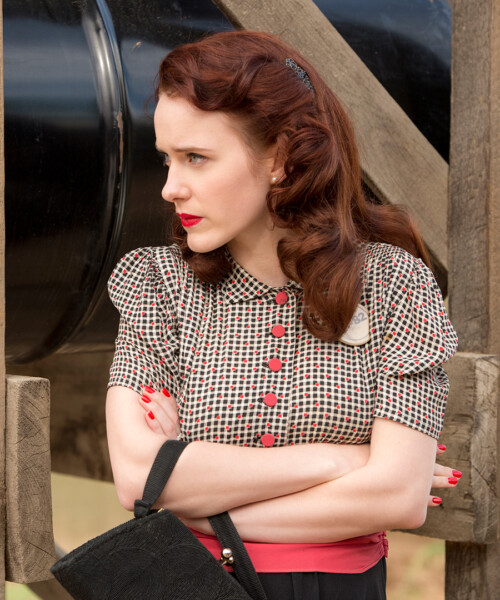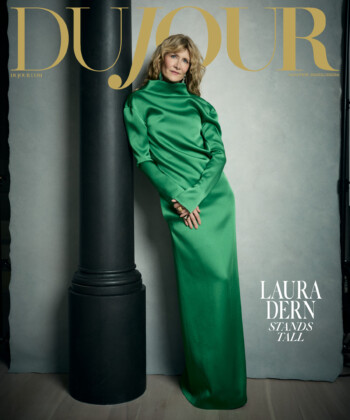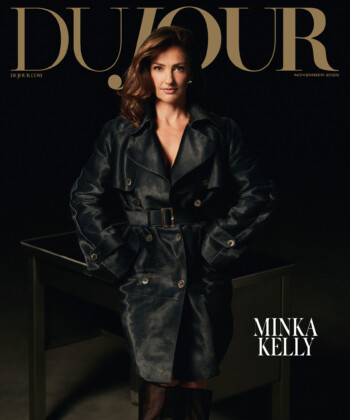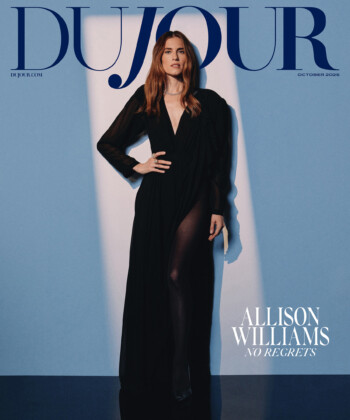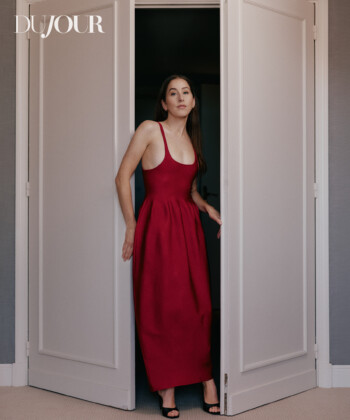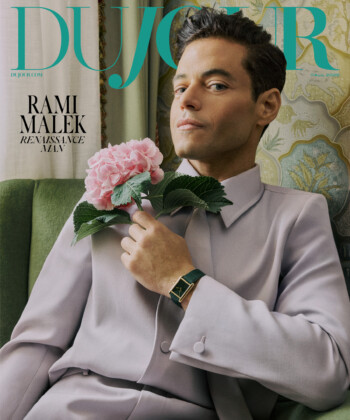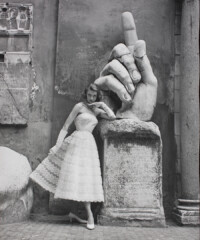Rachel Brosnahan seems to have a thing for explosives. The 25-year-old Emmy nominee can currently be seen in the WGN America series Manhattan, which takes place amidst the development of the atomic bomb, and in the coming months she’ll star alongside Jesse Eisenberg and Amy Ryan in the family drama Louder Than Bombs. What’s truly blowing up for the House of Cards alum, however, seems to be her career, as other upcoming, high-profile projects include The Fixer opposite James Franco and The Finest Hours with Chris Pine and Ben Foster.
Here, the actress discusses her role on Manhattan as an accidental accomplice at Los Alamos and how the lessons of the 1940s are still resonating today.
Manhattan has a lot going for it: bombs, secrets, international intrigue. What about the show most appealed to you?
Like most great shows, it was the script. I fell in love with the script. I couldn’t put it down. I was very busy and probably should have put it down, but I kind of stuck with it—and it was so good. You really get a sense of who these people are and what they want. I wasn’t sure about playing Abby, because she’s a 1940s housewife and I was very nervous about the idea of taking on a role that could potentially be an appendage to a more interesting male character. They quickly squashed those fears. Sam Shaw and Tommy Schlamme told me about the plan for the character and I was hooked. I’ve since fallen even more in love with her.
Why’s that?
She’s representing the birth of feminism, in a way, that happened during that time when all the men were abroad. They were fighting in the war and there was a need for labor and to fill previously exclusively male jobs. Women stepped up, sometimes willingly, and sometimes, in Abby’s case, they were forced to. She’s found that she relishes this new responsibility. She enjoys having more agency in her life and she didn’t have any idea that life could look any different than how she was brought up, and now her worldview is expanding. Her world is opening and it’s exciting and scary and very overwhelming for her.
What’s in store for her this season?
I think I’ve been saying, most broadly, in season one, you saw Abby being almost exclusively reactive. She arrived [at Los Alamos], she had no idea what she was in for, and she got knocked on her ass at every corner. In season two, she’s confident, and she’s open and she’s emotional and she’s asking questions constantly about the place, and about life and about her place in it. And in season two, you see a much more active Abby, who’s trying to regain control of her life, perhaps through some unlikely channels, and you also see her and a lot of the other characters dealing with their personal connections to the work that they’re doing at Los Alamos. Or in her case, what she thinks they’re doing at Los Alamos.
Have you learned much about the time period?
Before this particular role, the limited information I knew about the Manhattan project I learned in high school history class. It was largely about the science of the bomb and what we did with the bomb and how that impacted history moving forward. Abby doesn’t know about any of that. She doesn’t know, she doesn’t care. So for me it was more about figuring out what day to day life looked like at Los Alamos, which isn’t what you immediately come across when you start looking into the Manhattan Project. But there is actually quite a wealth of material about the wives of Los Alamos and what they did there all day, when they had no idea what they were doing there, how long they were going to be there—there was a shortage of pantyhose, they couldn’t leave, the security was so tight, the food had to travel such a long distance that by the time it arrived it was rotting off the shelves. What they did there and their contribution and what they did for work there as well, largely without having any idea what the work there was for, is fascinating. And there are a lot of books and accounts and essays and some fictional stories as well, which I read a lot of initially.
You were saying you had some misgivings early on about what your notion of the character might be. Has she proved to have unexpected challenges over the course of these two seasons?
Absolutely. She’s resilient. She’s more resilient than I think I could ever be in that situation. She’s difficult, for me, because the views she represents are very, very different from my own. It’s been a challenge to empathize with her at all times and to understand where she’s coming from. It’s trying to show a 360 view of how all the different people there felt about what they were doing and about politics and about the military. These are all themes that we’re still talking about today with people on all different sides of the debate. Some of Abby’s views on those things have been challenging to find myself.
The show’s set nearly 80 years ago, but do you think it has contemporary implications?
Our creator Sam Shaw has said before, “This is a story about today that happens to be set in the 1940s.” It was the birth of the atomic age. The show talks about nuclear fallout. We’re still dealing with the fallout of this project and what they created there today. It was supposed to be the weapon that ended that war and all wars to come. That’s what everyone kept saying. Obviously now we know that’s not true, and we’re talking about things that we’re still talking about. And it’s scary to see sometimes how far we haven’t come in the conversation, but I think that’s why people enjoy it. They can see themselves in the debates that they’re having with family and friends and look at it in a historical perspective knowing what we know today.

























